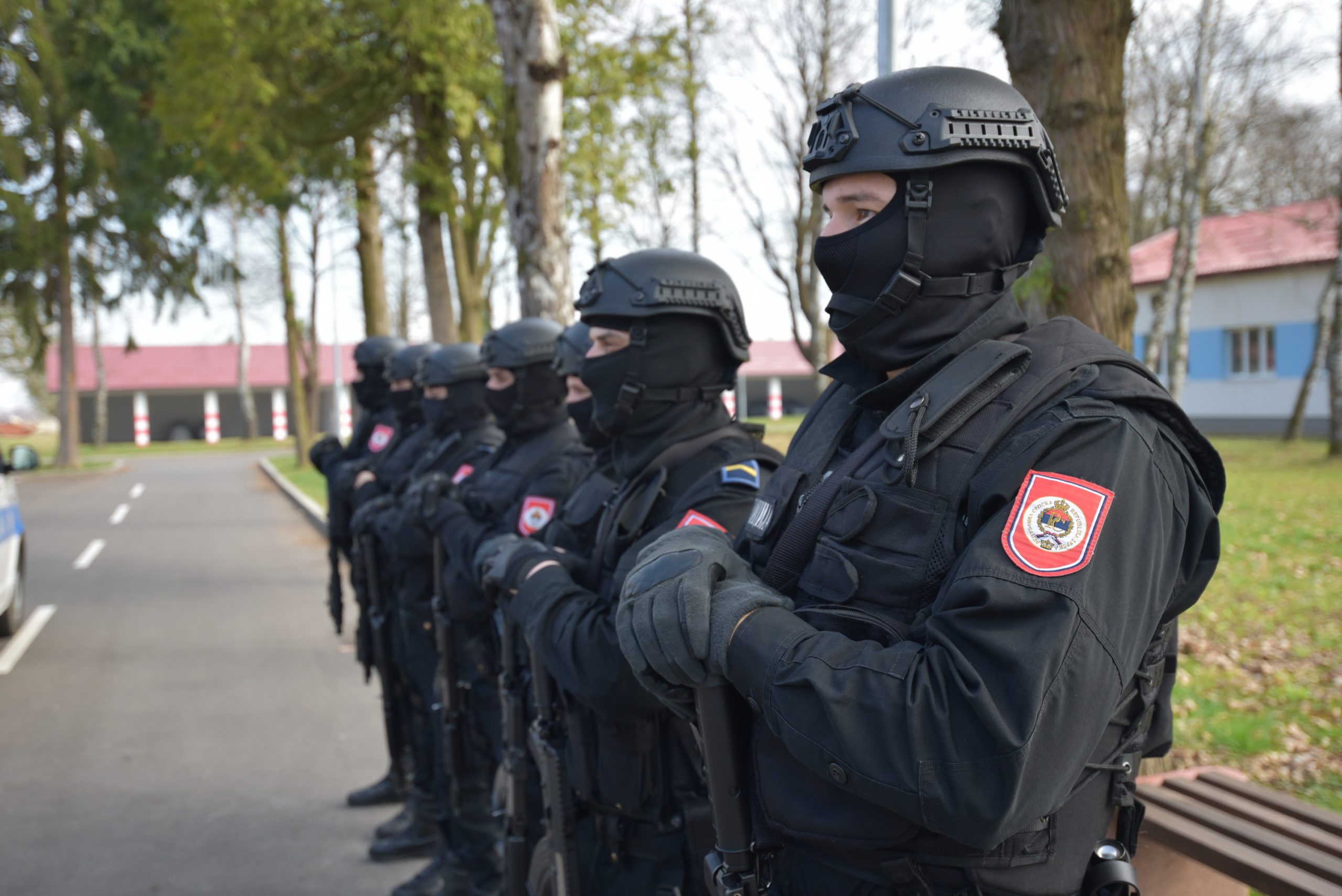“A two-story house, peeling like a leper, with windows bare of curtains, without flowers, like sick eyes without eyelashes and brows. Architecture from the mid-Austrian rule, with something bastardized between Central European and Middle Eastern construction of the time, pale and short of breath. Poverty without charm or color.” This is how Ivo Andrić writes in the short story Bife TITANIK.
The description fits post-war Bosnia and Herzegovina (BiH), patched together awkwardly and precariously, much like the comparison to the ship “Titanic,” which sank on its maiden voyage. Long sunken, and now reports come in that it is breaking apart on the ocean floor. Similarly, BiH first sank into a civil war, then struggled for thirty years, with its peace agreement being violated by Western powers, and is now irreversibly breaking apart. When, after nearly four years of a war where everyone fought against everyone, and even Muslims fought among themselves, the General Framework Agreement for Peace in BiH, known as the Dayton Agreement, was concluded, the American creators of the agreement did not even believe in the survival of their creation. After numerous peace initiatives and plans, the war ended on November 21, 1995, with the initialing of the peace agreement in Dayton, followed by its formal signing in Paris on December 14 of that same year.
What was created was “Bosnia and Herzegovina,” without a defined constitutional status, but with clearly delineated internal borders. Not just any borders, but precisely drawn on a geographical map at a scale of 1:50,000 and confirmed by a special Annex 2 of the Dayton Agreement, titled “Agreement on the Inter-Entity Boundary Line and Related Issues.” This was done to ensure that the boundary would be known when BiH inevitably falls apart. The boundary line in the Brčko area remained contentious, so Article 5 of the agreement established “mandatory arbitration (ONLY) of the disputed section of the inter-entity boundary line in the Brčko area.” This mandatory provision was grossly violated by the arbitration decision that addressed the entire area of Brčko, declaring it a special district of Bosnia and Herzegovina.
A state only on the outside, with entities inside
Although formally a member of the United Nations since May 1992, post-war “Bosnia and Herzegovina” only became a legally and practically recognized entity through the Dayton Agreement, with the election of authorities at all levels. One might say that territory is the only characteristic BiH has as a shared state of Serbs, Croats, and Bosniaks. Almost all internal sovereignty was assigned to the two entities — Republika Srpska and the Federation of BiH — which already existed and were signatories to all 11 annexes of the Dayton Agreement, creating the Dayton-based “Bosnia and Herzegovina.” Much of what was arranged by the Dayton Agreement and its Annex 4, which serves as the Constitution of BiH, was distorted by the illegal actions of seven high representatives, supported by similarly illegal actions of the so-called international community through the Peace Implementation Council (PIC), a self-selected body of self-selected countries and organizations, without any mention in the Dayton Agreement or its 11 annexes, and therefore without any jurisdiction. Annex 10 of the Dayton Agreement provided for a High Representative, but only one, which was Carl Bildt, although there have been seven so far. After Bildt, six more were appointed, confirmed by the UN Security Council, including Christian Schwarz-Schilling, as confirmed by the then-chairman of the Security Council, available online at
site.
The current corrupt individual, fueled by a high salary and pushed by whoever needs him, is not the High Representative according to the Dayton Agreement but a German tourist and self-proclaimed impostor, not worth wasting a keyboard on.
The Dayton Agreement created “Bosnia and Herzegovina,” which, by the will of its signatories, relinquished even what little sovereignty it had, asking for the appointment of a High Representative (only one, not multiple High Representatives), who would assist the parties (not dictate laws, remove democratically elected officials, or impose “reforms”) in implementing what they had agreed to by signing the 11 annexes. Annex 4, as the Constitution of BiH, established that there are only three bodies that include the term “Bosnia and Herzegovina” in their name — the Presidency (Article 5 of the Constitution), the Constitutional Court (Article 6), and the Central Bank (Article 7). These are imperative provisions, and the name “Bosnia and Herzegovina” does not apply to the Parliamentary Assembly, the Council of Ministers, or the many other institutions and entities that are not established by the Constitution of BiH but are illegally labeled as state organs of BiH — such as the Court of BiH, the Prosecutor’s Office of BiH, the Armed Forces, the Central Election Commission, the various ministries at the Council of Ministers, and other quasi-bodies and companies like “Elektroprivreda BiH,” which operates on just 25% of BiH’s territory.
There is no Constitutional Court of BiH
Another instance of sovereignty being surrendered by BiH is the selection of three foreign judges for the Constitutional Court of BiH, chosen by a foreigner — the president of the European Court of Human Rights. Article 6, Section 1 of the Constitution of BiH states: “Composition: The Constitutional Court of Bosnia and Herzegovina shall have nine members.” This is an imperative, binding provision — legally referred to as jus cogens. In international law, and the Dayton Agreement with all its annexes is part of international law, jus cogens is defined as a peremptory norm of general international law. According to Article 53 of the Vienna Convention on the Law of Treaties, it is any norm accepted and recognized by the international community of states as a whole as a norm from which no derogation is permitted and which can be modified only by a subsequent norm of general international law of the same character. By signing the Dayton Agreement, which was endorsed by global powers — the USA, the UK, France, Russia, and Germany, as well as members of the United Nations and the Security Council, and with the European Union, the agreement became one of the most important documents of international law. It has not been amended to this day because there has been no new international conference with all Dayton participants, and every provision remains in effect. The Constitution of BiH does not allow any exceptions by which the Constitutional Court of BiH could exist without nine members.
Thus, Article 6, Section 1 has not been amended by the signatories of Annex 4 — the Constitution of BiH. The provision in Section 1(a) remains, stating: “Four members shall be selected by the House of Representatives of the Federation, and two members by the National Assembly of Republika Srpska.” This provision has not been amended, and as is known, the National Assembly of Republika Srpska has not appointed two other judges following the expiration of the mandates of judges Miodrag Simović, who turned 70 on November 4, 2022, and Zlatko Knežević, who resigned due to retirement. This is also regulated by Section 1(c).
The Constitutional Court of BiH now has only seven judges, three of whom are foreigners, and the others are Bosniaks and Croats. The Court did not have a second Croatian judge for almost two years, as the mandate of Judge Mato Tadić ended in mid-2022, and the new judge, Marin Vukoja, took office in May 2024. This means that the Constitutional Court of BiH has not had the nine judges required by the Constitution of BiH for several years.
Legally, the Constitutional Court of BiH cannot exist, and it certainly cannot make decisions without the required full composition. This is not affected by the provision in Article 5, Section 2(a), which states: “A majority of all members of the Court shall constitute a quorum,” as this is a procedural provision that applies only when there is a full composition of nine members, as prescribed by the Constitution of BiH. Republika Srpska, due to constant overrule in decision-making where three foreign judges consistently sided with Bosniak judges, forming a majority of five votes to overrule judges from Republika Srpska, even when joined by votes from Croatian judges, as happened in the falsified “decision on constitutionality” (5:4) or the “constitutionality of the Law on the Court of BiH” (5:4), took action. Elected political representatives from Republika Srpska, along with Croatian representatives from the Federation, have long attempted to pass a law replacing the three foreign judges with domestic judges. Due to opposition from Bosniak representatives, it was impossible to reach any agreement on replacing foreign judges after the initial five-year term, as indicated by Article 6.1(d) of the Constitution of BiH.
Republika Srpska acted in accordance with the Constitution of BiH, which states that “BiH is a democratic state that functions under the rule of law and has free and democratic elections” (Article 1.2). Therefore, the National Assembly, as the highest body of one of the constituent entities of Dayton BiH, declared by law that decisions made by the incomplete Constitutional Court of BiH are null and void and cannot be enforced. This is not altered by Article 6, Section 4 of the Constitution of BiH, which states that
“Decisions of the Constitutional Court shall be final and binding.” They are, but only if the Constitutional Court exists, which it does not if there are not nine members. An incomplete Constitutional Court of BiH cannot exist, and all its decisions made with less than nine members are INVALID. Every lawyer knows this, and a detailed explanation makes this clear to everyone.
The Titanic is breaking apart, and the foreigners are playing music
The conclusion is well-known, but from another story that says: “I gave you life, and I will take it away.” “Not looking exactly where to aim, pressing the trigger equally frantically, and holding the revolver on burst fire, clumsily and far from himself…” Andrić writes at the end. This is how the collective West, led by America, killed BiH, which could not muster the strength to resist and say: “Stop defending me.”
Source: Glas Srpske









